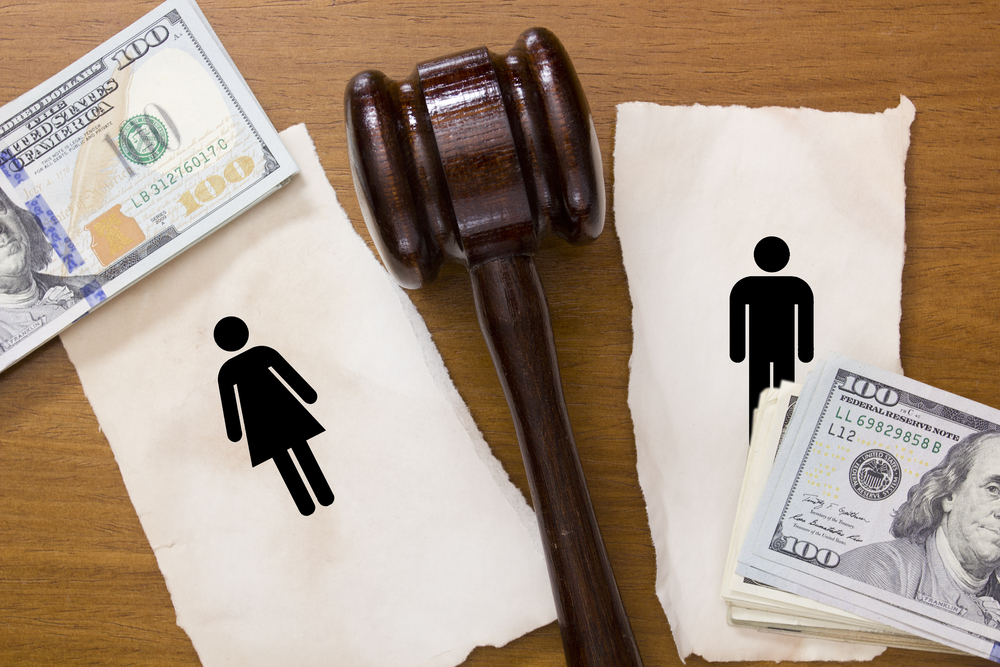How Is Shared Tax Debt Handled in a Divorce?
- Oct 15, 2023
 Divorce can be a complicated and emotionally charged process, especially when it comes to dividing assets, property, and debts. One often overlooked aspect of divorce is the handling of shared tax debt. When a couple files joint tax returns during their marriage, they become jointly responsible for any tax liabilities that may arise. Therefore, it's crucial to understand how shared tax debt is handled in a divorce to ensure a fair and equitable resolution.
Divorce can be a complicated and emotionally charged process, especially when it comes to dividing assets, property, and debts. One often overlooked aspect of divorce is the handling of shared tax debt. When a couple files joint tax returns during their marriage, they become jointly responsible for any tax liabilities that may arise. Therefore, it's crucial to understand how shared tax debt is handled in a divorce to ensure a fair and equitable resolution.
Understanding Joint Tax Liability
In a marriage, filing joint tax returns is a common practice, as it can result in certain tax benefits, such as lower tax rates and eligibility for various tax credits. However, when you file jointly, both spouses become equally responsible for the tax liability associated with that return. This means that if there are unpaid taxes, interest, or penalties on a joint return, both spouses are on the hook for the full amount.
Options for Handling Shared Tax Debt in Divorce
- Continue Joint Responsibility: One option is to continue sharing the responsibility for the tax debt even after the divorce. This may be the case if both spouses agree to maintain joint liability, perhaps as part of a divorce settlement. However, this can be risky, as it relies on both individuals to fulfill their tax obligations.
- Allocate the Debt: Another option is to allocate the tax debt between the spouses. This can be done in the divorce settlement agreement, where the parties decide how much each person will be responsible for paying. Keep in mind that the IRS is not bound by these agreements and may still pursue either or both spouses for the full amount owed.
- Innocent Spouse Relief: If one spouse believes they should not be held responsible for the joint tax debt, they may seek innocent spouse relief. This provision allows the innocent spouse to be relieved of their share of the tax debt, interest, and penalties if they can prove they were unaware of the inaccuracies or fraud on the joint return. This is a crucial avenue to explore if you believe you should not be held responsible for your ex-spouse's tax mistakes.
- Separate Tax Liability: After a divorce, some couples may choose to file their tax returns separately. This means that each spouse will be responsible for their own tax liability, and they won't be held accountable for each other's debts. While this can provide a clean break from tax issues, it's essential to consider the potential impact on your overall tax situation, as filing separately can lead to higher tax rates and fewer tax benefits.
Navigating the Process
To navigate the complexities of handling shared tax debt in a divorce, it's crucial to take the following steps:
- Open Communication: Maintain open and honest communication with your spouse during the divorce process. Discuss your preferences and concerns regarding the division of tax debt, and consider seeking professional advice when necessary.
- Consult a Tax Professional: Enlist the help of a qualified tax professional or attorney who specializes in divorce and tax matters. They can provide valuable guidance on your specific situation and help you explore the best options for handling shared tax debt.
- Review Your Divorce Settlement: Carefully review your divorce settlement agreement to ensure that it accurately reflects how shared tax debt will be allocated. Any discrepancies or uncertainties should be addressed and clarified with your attorney.
- Consider Innocent Spouse Relief: If you believe you qualify for innocent spouse relief, gather the necessary documentation and work with a tax professional to submit your request to the IRS. This can be a complex process, so having expert assistance is invaluable.
Divorce is never easy, and dealing with shared tax debt only adds to the complexity. It's essential to be informed about your options and seek professional guidance to ensure a fair and equitable resolution. Whether you choose to continue sharing tax liability, allocate the debt, seek innocent spouse relief, or file separately, understanding the implications and potential consequences is crucial.
If you have questions about innocent spouse protection or other tax debt relief options, don't hesitate to reach out to the IRS Advocates. Our team of experts is here to provide guidance and support to individuals facing tax-related challenges, regardless of whether they’re caused by divorce, financial hardships, or other circumstances. Contact us today to discuss your specific situation and explore the options available to you. We are committed to helping you find a resolution that best suits your needs and protects your financial future.
STOP THE IRS!
Settle for less & Protect your assets
Never Call the IRS without Speaking with our Pros First!